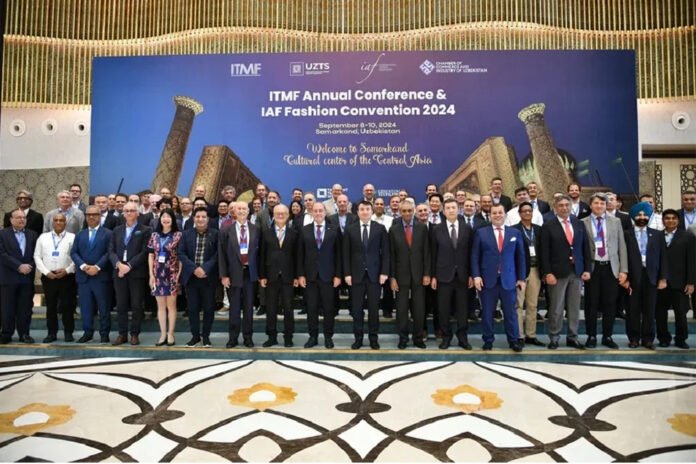At the recent ITMF-IAF Summit held in Samarkand, the global fashion and textiles industry marked a transformative moment with a renewed focus on sustainability, innovation, and collaboration.
The summit, hosted by the International Textile Manufacturers Federation (ITMF) and the International Apparel Federation (IAF), brought together industry leaders, policymakers, and stakeholders to address the sector’s most pressing challenges.
The event highlighted a unified commitment to advancing sustainable practices across the fashion and textiles supply chain. Key discussions centered on the integration of cutting-edge technologies, such as blockchain and AI, to enhance transparency, efficiency, and environmental stewardship. The summit also emphasized the need for stronger global partnerships to foster innovation and drive positive change in the industry.
One of the summit’s significant outcomes was the introduction of a comprehensive framework for sustainability that aims to set new standards for ethical production and consumption. This framework is designed to support the industry’s transition towards more sustainable practices while maintaining economic viability.
Additionally, the event underscored the importance of education and training in equipping the workforce with the skills necessary for navigating the evolving landscape of fashion and textiles.
As the summit concluded, participants expressed optimism about the future, with a shared vision of a more sustainable and resilient industry.
The gathering in Samarkand thus represents a pivotal moment in shaping the future of fashion and textiles, marking the beginning of a new era characterized by innovation and sustainability.
At the recent ITMF-IAF Summit held in Samarkand, the global fashion and textiles industry marked a transformative moment with a renewed focus on sustainability, innovation, and collaboration. The summit, hosted by the International Textile Manufacturers Federation (ITMF) and the International Apparel Federation (IAF), brought together industry leaders, policymakers, and stakeholders to address the sector’s most pressing challenges.
The event highlighted a unified commitment to advancing sustainable practices across the fashion and textiles supply chain. Key discussions centered on the integration of cutting-edge technologies, such as blockchain and AI, to enhance transparency, efficiency, and environmental stewardship. The summit also emphasized the need for stronger global partnerships to foster innovation and drive positive change in the industry.
One of the summit’s significant outcomes was the introduction of a comprehensive framework for sustainability that aims to set new standards for ethical production and consumption. This framework is designed to support the industry’s transition towards more sustainable practices while maintaining economic viability. Additionally, the event underscored the importance of education and training in equipping the workforce with the skills necessary for navigating the evolving landscape of fashion and textiles.
As the summit concluded, participants expressed optimism about the future, with a shared vision of a more sustainable and resilient industry. The gathering in Samarkand thus represents a pivotal moment in shaping the future of fashion and textiles, marking the beginning of a new era characterized by innovation and sustainability.



